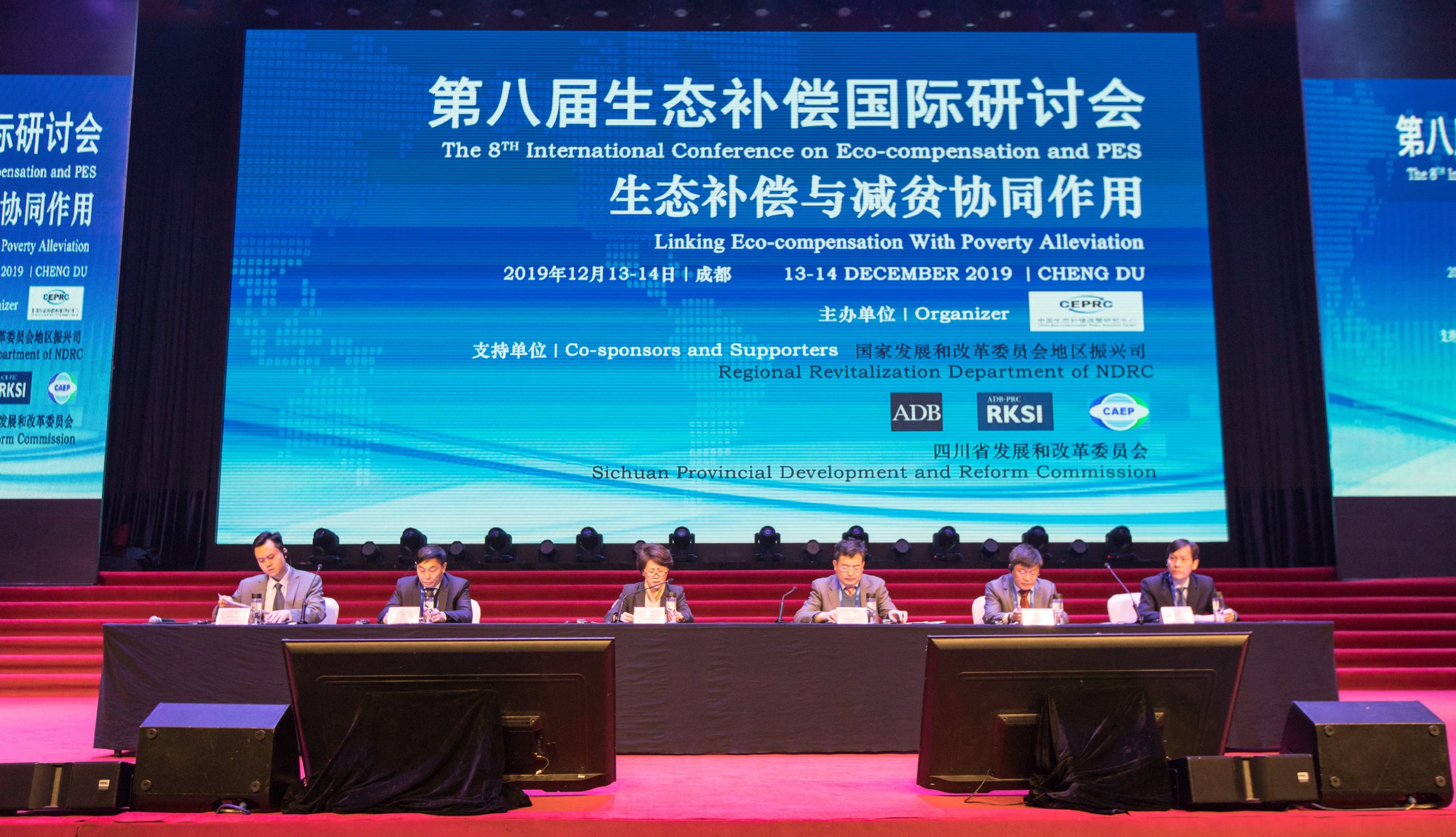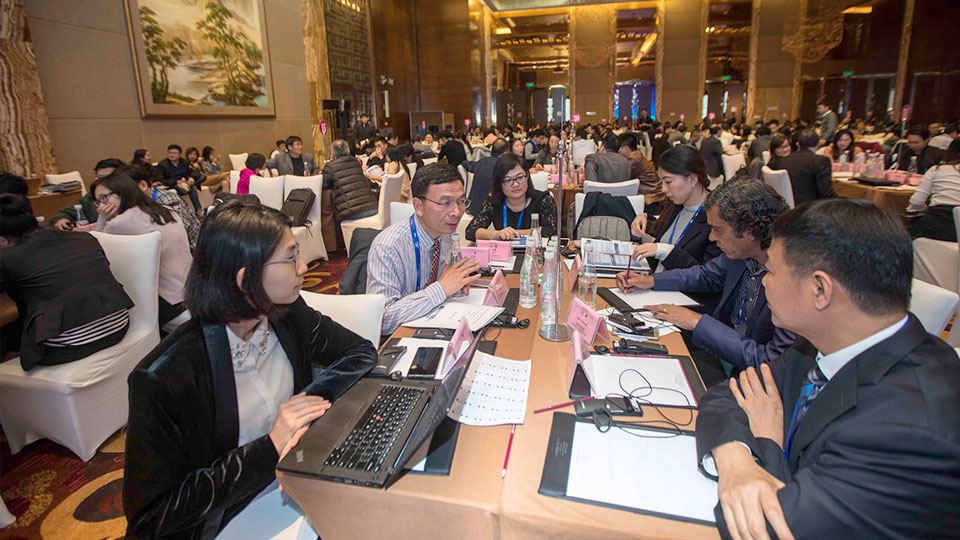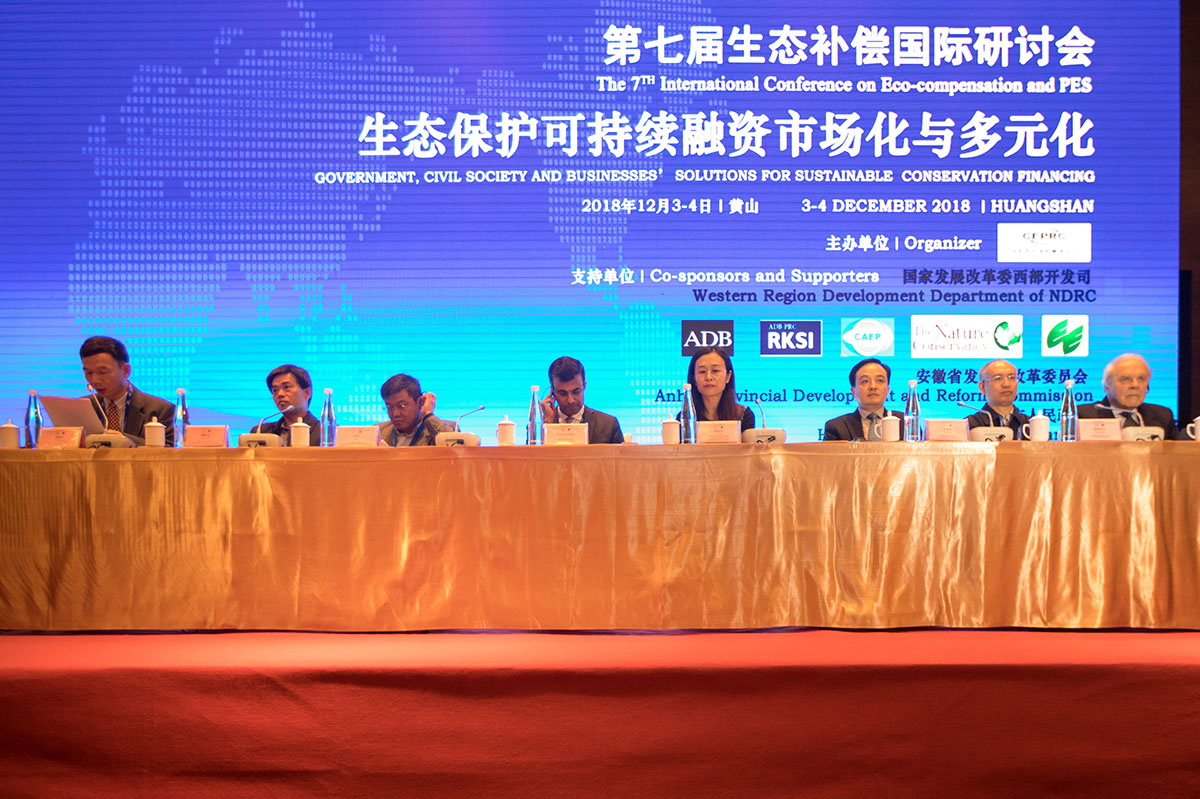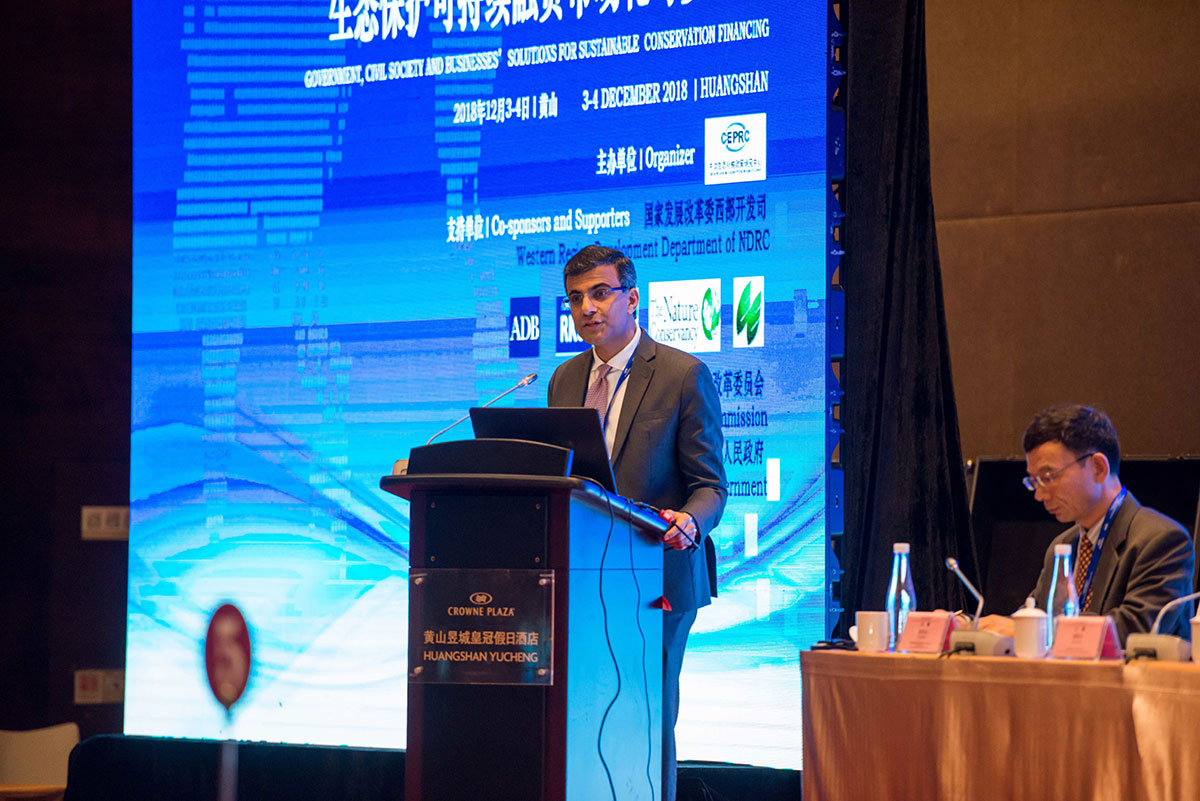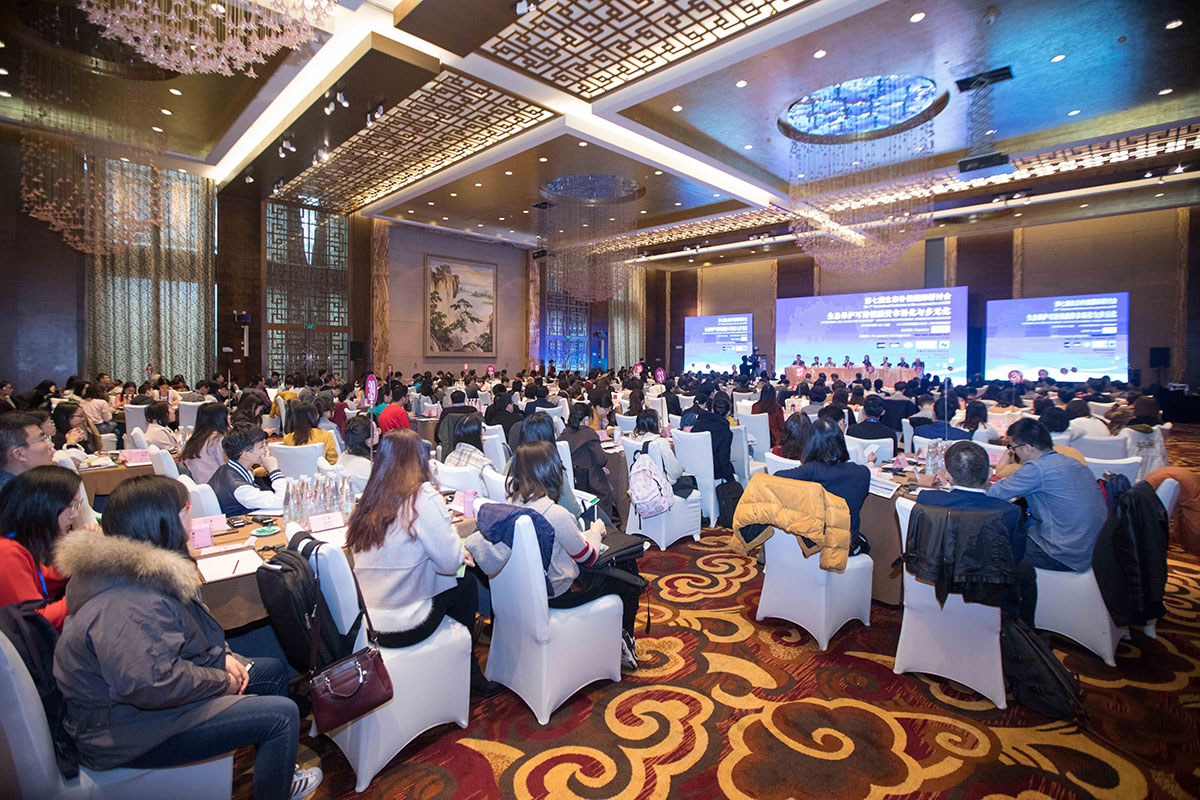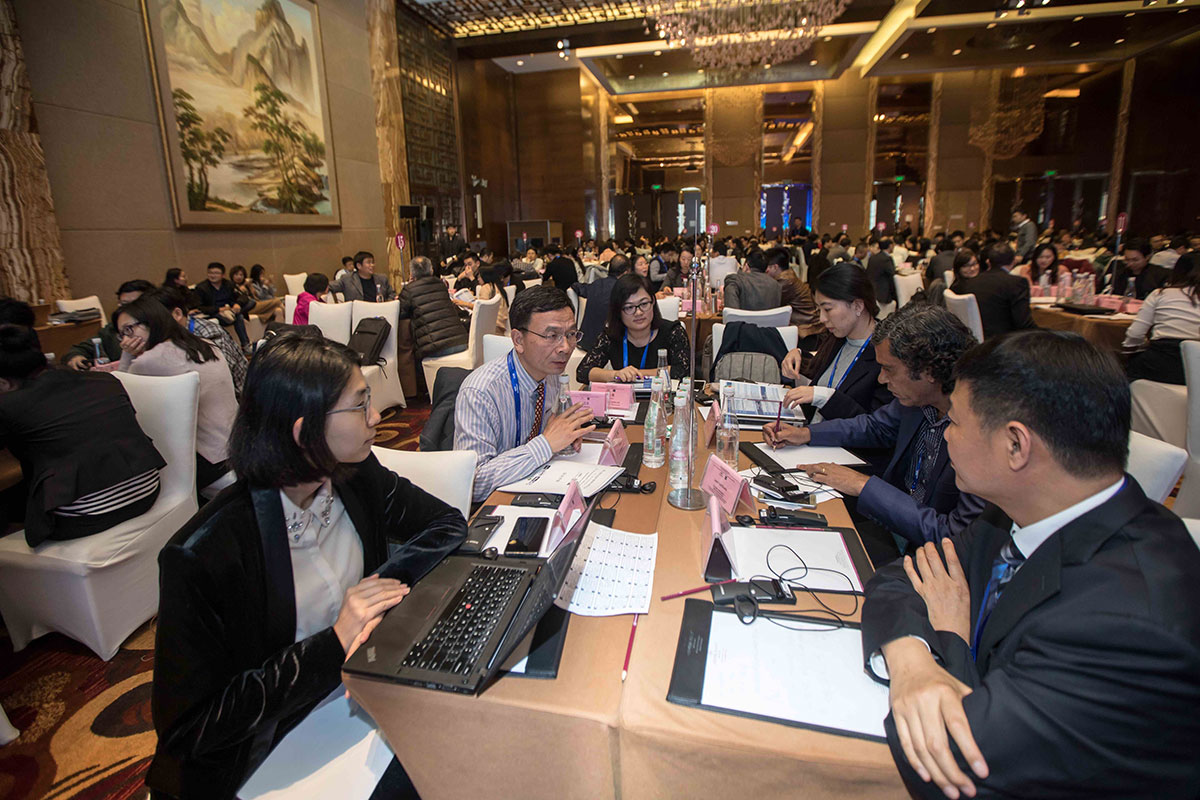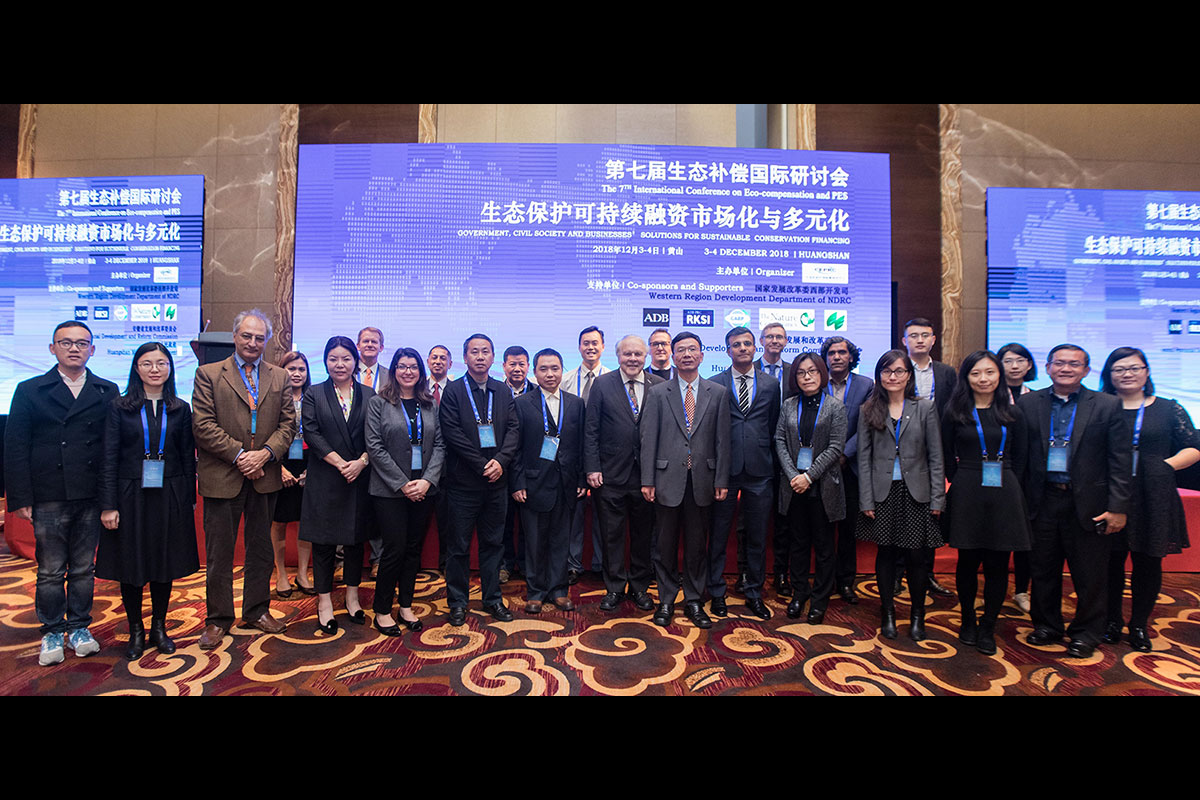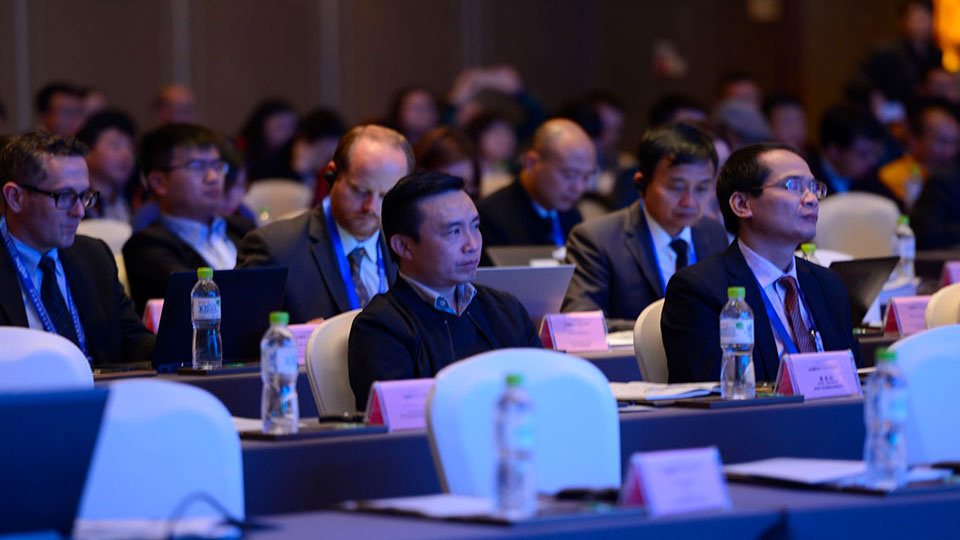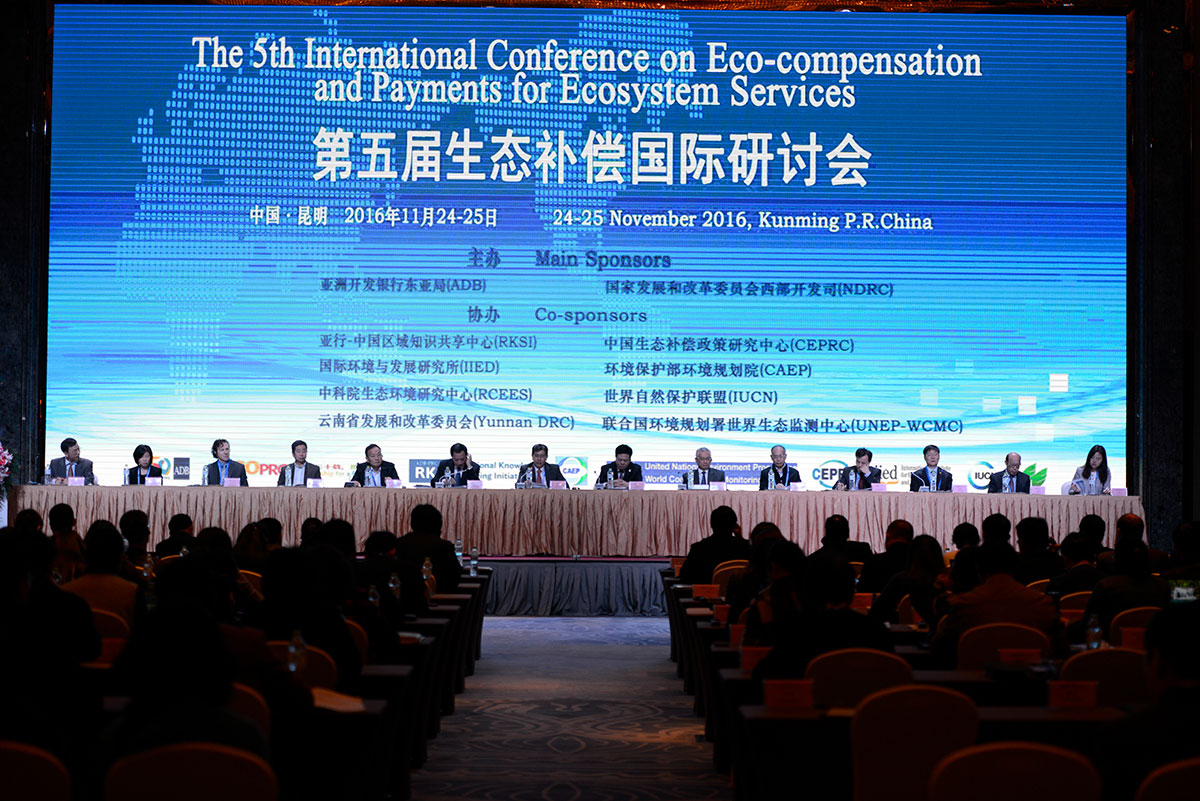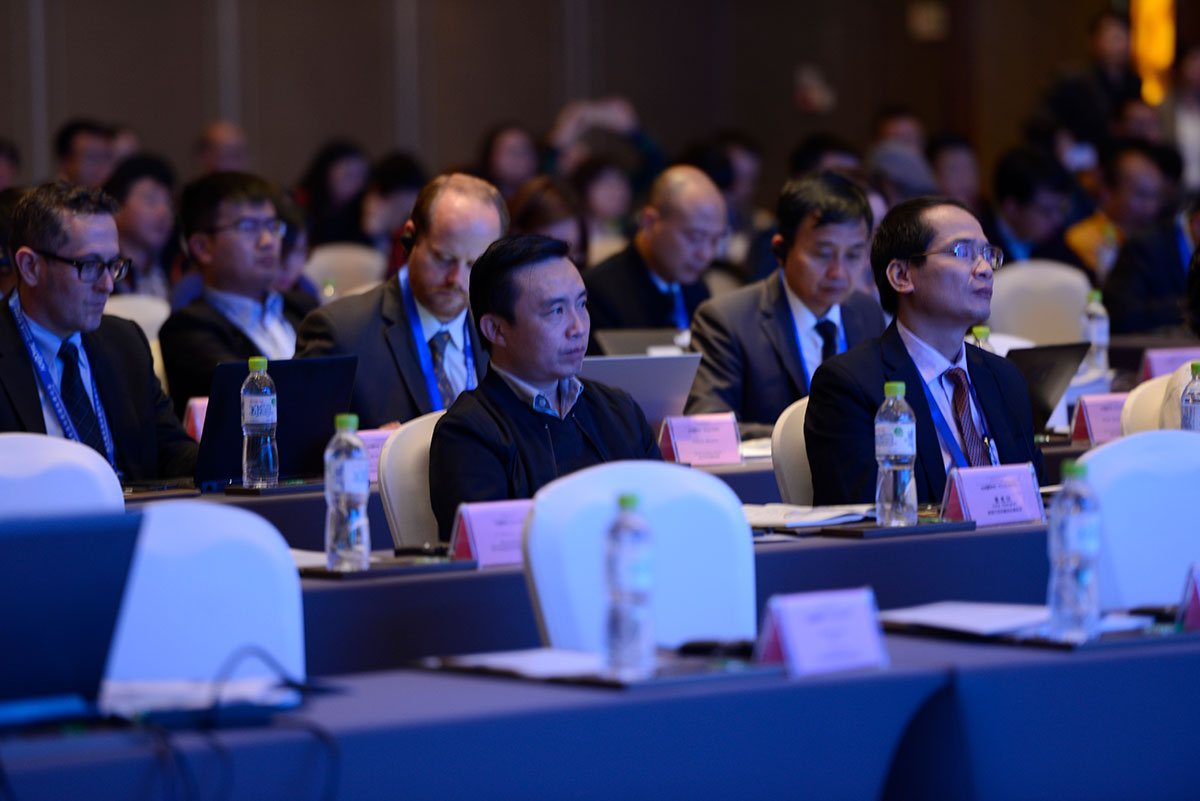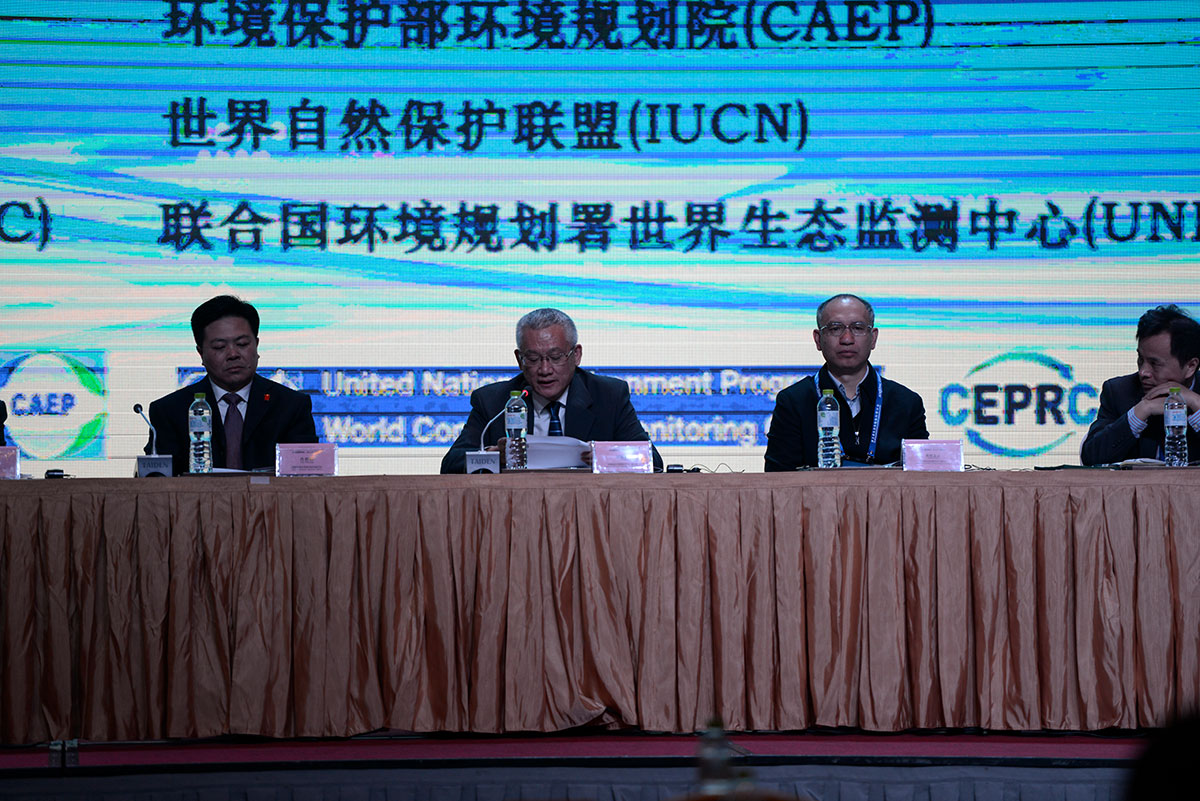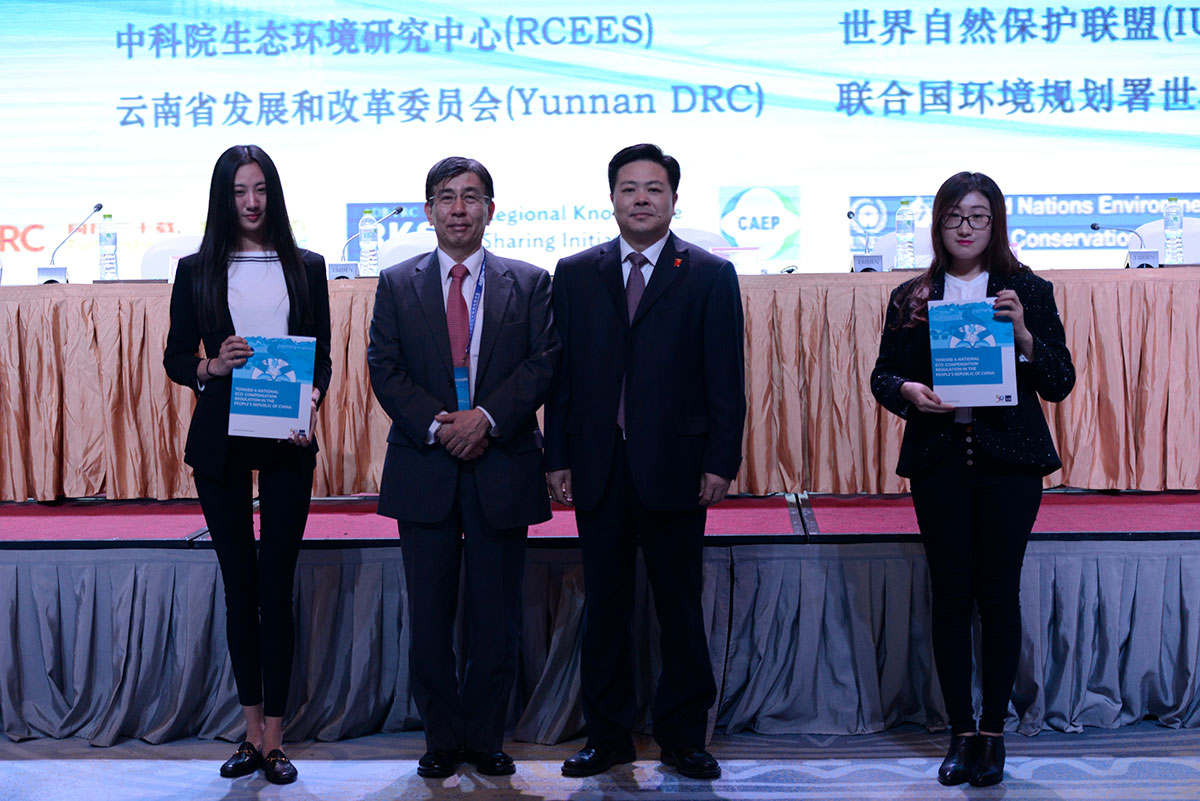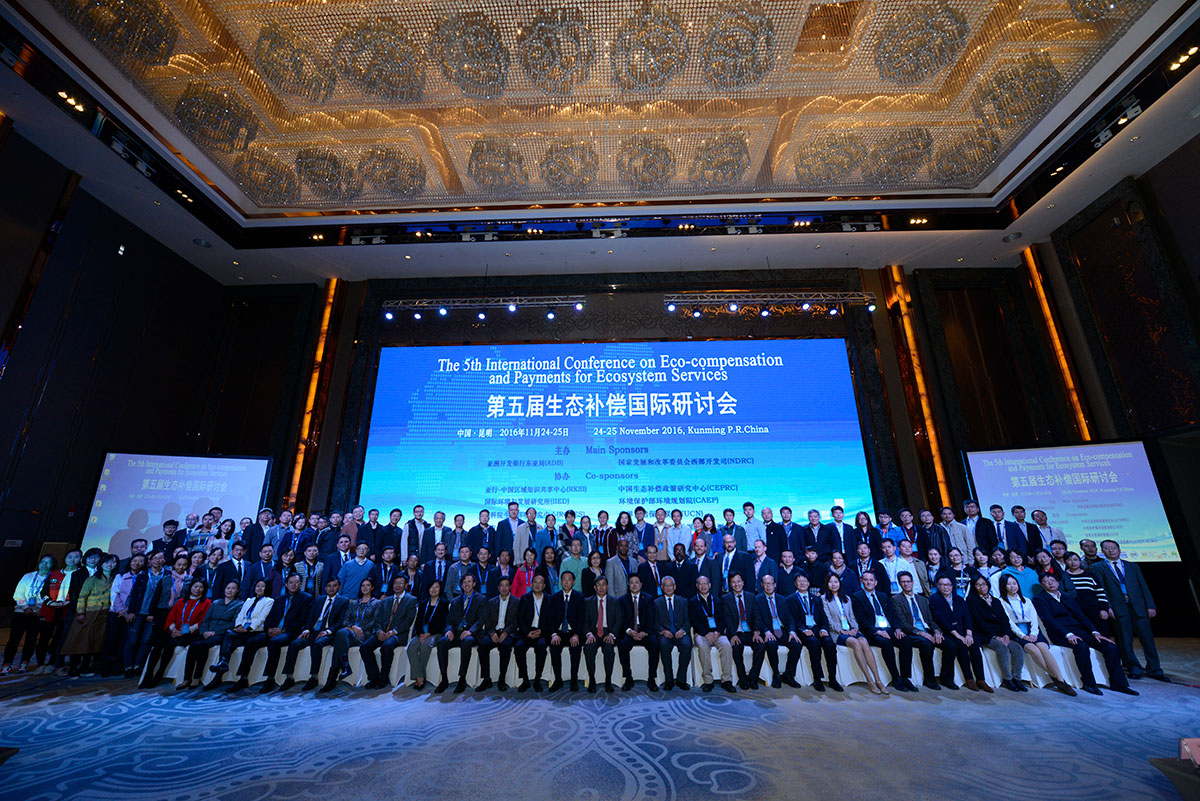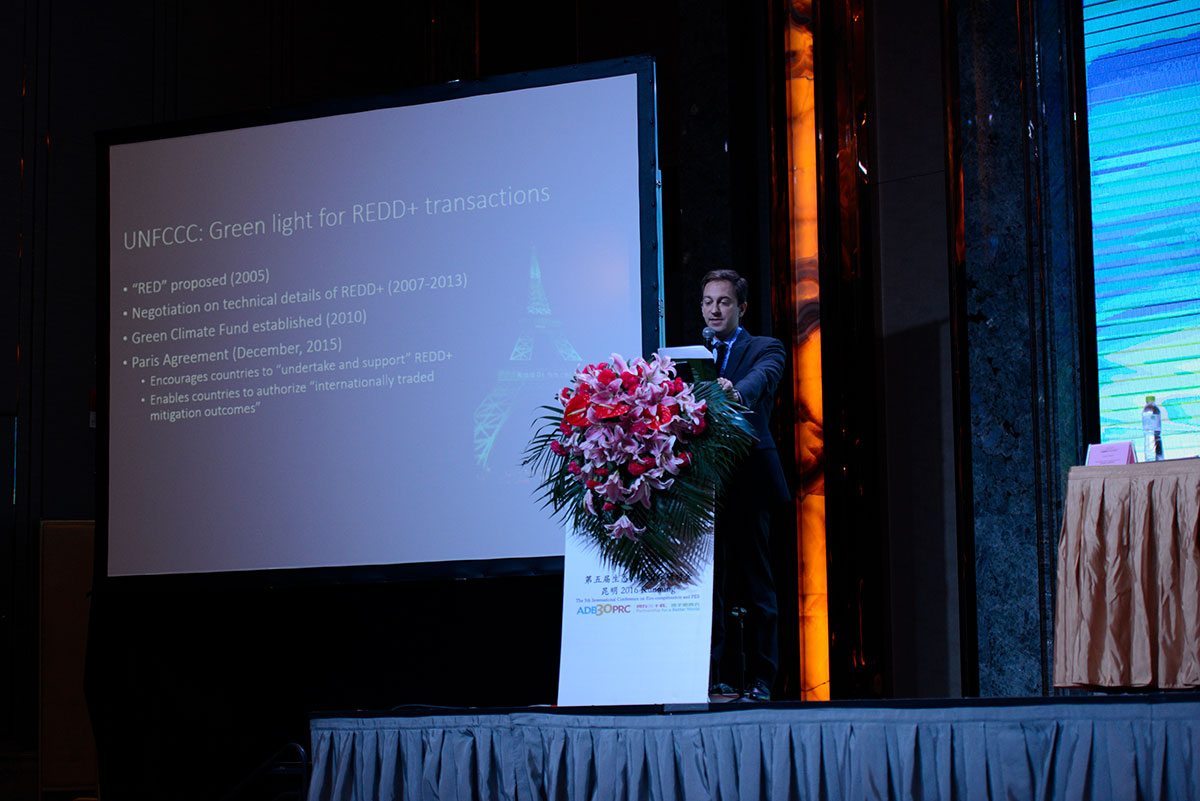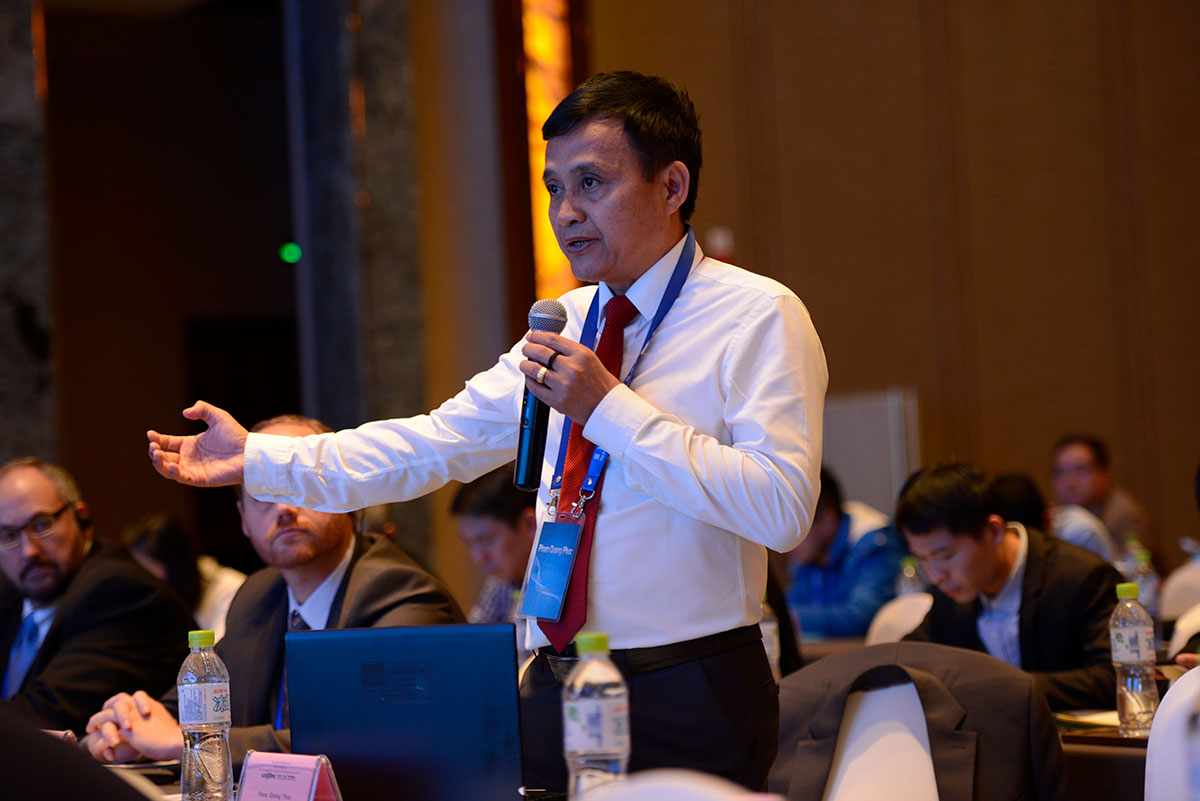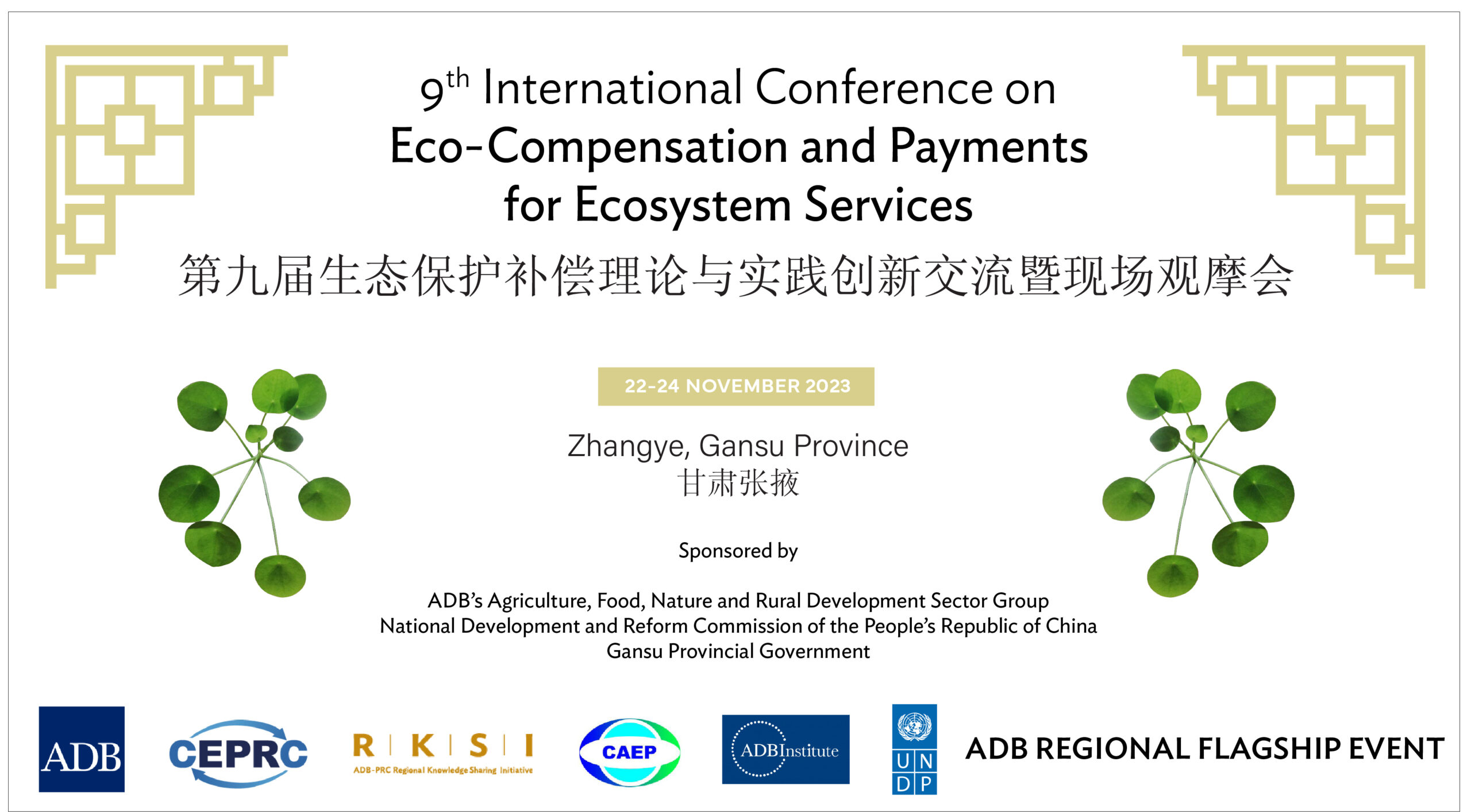
Eco-compensation is a policy mechanism which aims to mitigate the negative environmental impacts of human activities by implementing measures to offset or compensate for ecological damage caused by those activities. Examples of eco-compensation include fiscal transfer, regional cooperation, and market incentives.
Over the past two decades, eco-compensation has seen significant growth in the People’s Republic of China (PRC). Pilot projects established at the regional scale have demonstrated encouraging promise across the country. Although a national eco-compensation strategy has yet to be implemented, these pilot studies have provided the foundation for eco-compensation to be adopted and integrated into broader incentive mechanisms to achieve sustainability, supported by appropriate regulatory and legal basis.
Since 2009, the Asian Development Bank (ADB) has supported the development of eco-compensation in the PRC. This has predominantly been through facilitating policy dialogue and technical cooperation with the National Development and Reform Commission (NDRC) on a range of projects and policy reform initiatives, including eco-compensation policy, legislation, market-based instruments, performance evaluation, and links with wider poverty reduction initiatives.
After a three-year postponement because of the Covid-19 pandemic, this year’s conference is a regional flagship event led by the ADB’s Agriculture, Food, Nature and Rural Development Sector Group (AFNR) to promote collaboration among public, private, and civil sectors for sustainable conservation finance, discuss innovative financing methods and challenges, strengthen networks among eco-compensation and PES stakeholders, and facilitate knowledge sharing among countries including the PRC.
This year’s 9th International Conference on Eco-compensation and PES will review the progress of eco-compensation in the PRC and PES in other parts of the world and has a thematic focus on the legal framework for eco-compensation and PES which ADB has assisted since 2009 with a number of TAs including TA-7699 PRC and TA-6595 PRC.
Register via Zoom.
Agenda
Excursion to Zhangye Wetlands
| Time | Program |
|---|---|
| 9:00 – 10:20 | Opening Plenary and Keynote Speech Chair: Wang Xintong, Deputy Director General, Regional Revitalization Department, National Development and Reform Commission (NDRC) |
| 09:00 – 09:40 | Opening Remarks TBD, Vice Chairman, National Development and Reform Commission (NDRC) M. Teresa Kho, Director General, East Asia Department, Asian Development Bank (ADB) Cheng Xiaobo, Vice Governor, Gansu Provincial Government James George, Deputy Resident Representative, UNDP PRC Lu Xiaoheng, General Secretary, Zhangye Municipal Committee of Communist Party of PRC |
| 09:40 – 10:00 | Keynote Presentations: Advances in Policy and Legislation of Eco-compensation in the PRC Tong Zhangshun, Director General, Regional Revitalization Department, National Development and Reform Commission (NDRC) Legislation of Eco-compensation in the PRC Zhang Yaobo, Deputy Director General, Legislation Bureau II, Ministry of Justice of PRC Coffee/Tea Break |
| 10:35 – 12:10 | Thematic Session 1: Advancement in Eco-Compensation and Payments for Ecosystem Services Chair:Thomas Panella, Director, Natural Capital and Climate Team, ADB |
| 10:35 – 10:50 | The PRC’s Innovation in Eco-compensation Nan Zhibiao, Professor, Lanzhou University, and Academician of Chinese Academy of Engineering |
| 10:50 – 11:05 | Eco-compensation Legislation in the PRC Wang Jin, Law Professor, Law School, Peking University |
| 11:05 – 11:20 | Payments for Ecosystem Services Revisited Sven Wunder, Principal Economist, European Forest Institute |
| 11:20 – 11:35 | Result Based Private Sector Participation in Environmental Protection Timothy Male, Executive Director, Environmental Policy Innovation Center, USA |
| 11:35 – 12:00 | Panel discussion and Q&A: Innovation, Legislation, and Replicability of the PRC’s Eco-compensation Moderator: Chair Panelists: Wang Xintong, Deputy Director General, Regional Revitalization Department, National Development and Reform Commission (NDRC) Nan Zhibiao, Professor, Lanzhou University, and Academician of Chinese Academy of Engineering Wang Jin, Law Professor, Law School, Peking University Sven Wunder, Principal Economist, European Forest Institute Timothy Male, Executive Director, Environmental Policy Innovation Center, USA Kabir Jurazoda, Director, CAREC Institute |
| 12:00 – 13:30 | Lunch Break |
| 13:30 – 15:25 | Thematic Session 2:Vertical Eco-compensation Chair:Au Shion Yee, Principal Water Resources Specialist, ADB |
| 13:30 – 13:45 | Forest and Grassland Eco-compensation in the PRC: Innovations and Prospects Yan Zhen, Deputy Director General, National Forestry and Grassland Administration |
| 13:45 – 14:00 | Gansu Eco-compensation Practice and Innovation Ding Jusheng, Director General, Gansu Development and Reform Commission- |
| 14:00 – 14:15 | The PRC’s Vertical Eco-compensation: Inception and Evolution Jin Leshan, Executive Director, China Eco-compensation Policy Research Center |
| 14:15 – 14:30 | Payments for Forest Ecosystem Services in Viet Nam: Institutional Framework Pham Hong Luong, Chief of VNFOREST’s Office, Vietnam Administration of Forestry (VNFOREST) |
| 14:30 – 14:45 | International Lessons Learned on Payment for Ecosystem Services and its Legality James Salzman, Law Professor, University of California, Santa Barbara (virtual) |
| 14:45 – 15:25 | Panel Discussion and Q&A: National level legislation and regulatory frameworks for Eco-compensation and PES: viability and necessity Moderator: Dongmei Guo, Environment Specialist, ADB Panelists: Yan Zhen, Deputy Director General, National Forestry and Grassland Administration Ding Jusheng, Director General, Gansu Provincial Development and Reform Commission Lu Sidong, Secretary General, Sunan County, Gansu Province Jin Leshan, Executive Director, China Eco-compensation Policy Research Center Pham Hong Luong, Director General, Planning and Finance Department, Vietnam Administration of Forestry (VNFOREST) |
| 15:25 – 15:40 | Coffee/Tea Break |
| 15:40 – 18:00 | Thematic Session 3:Horizontal Eco-compensation Chair: Mingyuan Fan, Principal Water Resources Specialist, ADB |
| 15:40 – 15:55 | Horizontal Eco-compensation: Practices and Challenges Gou Xiaohua, Professor and Vice President, Lanzhou University |
| 15:55 – 16:10 | Watershed Eco-compensation between Upstream and Downstream: Progress in the PRC Liu Guihuan, Research Professor and Chief Scientist, Chinese Academy of Environmental Planning (CAEP) |
| 16:10 – 16:25 | Xin’an Watershed Eco-compensation Between Anhui and Zhejiang Provinces: A Model in Replication and A New Horizon for Innovation Chen Jun, Director General, Anhui Provincial Development and Reform Commission |
| 16:25 – 16:35 | Q&A |
| 16:35 – 16:50 | Legal Frame for Eco-compensation in the PRC Wang Qingjun, Professor of Law School, Huazhong Normal University |
| 16:50 — 17:05 | Conservation Funding in the Developing Countries of Asia Yixin Yao, Senior Research Fellow, ADBI |
| 17:05 — 17:20 | Legal Frame for EU Incentive based Eco-schemes Rowena Cantley-Smith, Law Professor, Law Faculty, University of Technology Sydney (UTS) (virtual) |
| 17:20 – 18:00 | Panel Discussion and Q&A: Horizontal Eco-compensation Moderator: Yixin Yao, Senior Research Fellow, ADBI Panelists: Liu Guihuan, Research Professor and Chief Scientist, CAEP Si Lijuan, Professor, Lanzhou University Chen Jun, Director General, Anhui Provincial Development and Reform Commission Wang Qingjun, Professor of Law School, Huazhong Normal University Cheng Hongguang, Dean, College of Water Sciences, Beijing Normal University Jiang Mao, President of the Board of Directors, Huangshan Xintou Group |
| 18:00 – 20:00 | Dinner |
| Time | Program |
|---|---|
| 09:00 – 11:30 | Thematic Session 4: Market-based Eco-compensation Chair: Xueliang Cai, Senior Water Resources Specialist, ADB |
| 09:00 – 09:15 | Sustainable Biodiversity Financing: UNDP Experiences and Outlook Leng Fei, National Coordinator of BIOFIN the PRC and Project Manager, UNDP PRC |
| 09:15 – 09:30 | Natural Capital Investment: Sustainability Perspective Carlos Manuel Rodríguez, CEO and Chairperson GEF |
| 09:30 – 09:45 | Market Approach for Conservation Financing Gui Hua, Deputy General Manager, Ecological Product Development Research Center, CECEP |
| 09:45 – 10:00 | Incentives for Sustainable Agriculture: International Lessons Learned Li He, Natural Resources Officer/Agriculture Officer, Regional Office for Asia and the Pacific (Bangkok), Food and Agriculture Organization of the United Nations (FAO) |
| 10:00 – 10:15 | ADB’s Natural Capital Lab Initiative for Ecosystem Protection Silvia Cardascia, Water Resources Specialist, ADB |
| 10:15 – 10:30 | Q&A |
| 10:30 – 10:45 | Two-Mountain Banking Initiative for Ecosystem Protection Du Xuliang, Director General, Zhejiang Provincial Development and Reform Commission |
| 10:45 – 11:00 | Crowdfunding for Ecosystem Protection Chen Peng, Secretary General, The PRC Green Foundation |
| 11:00 – 11:15 | Ecosystem Restoration by Private Sectors: ADB Pilots Niu Zhiming, Senior Officer, ADB PRCM |
| 11:10 – 11:30 | Q&A |
| 11:30 – 11:50 | Closing Session Chair:Song Yuanyuan, Director, Regional Revitalization Department, NDRC ADB, TBD Wang Xintong, Deputy Director General, Regional Revitalization Department, National Development and Reform Commission (NDRC) |
| 11:50 – 13:30 | Lunch and Conference Closed |
| 13:30 – 17:45 | Internal Meeting by invitation only Participants:NDRC, ADB, Consultants, invited representatives |
| 13:30 – 15:30 | Interim Review Workshop for TA-6945 PRC: Eco-compensation Mechanism for Protected Areas with a Focus on National Parks Project |
| 15:30 – 15:45 | Tea Break |
| 15:45 – 17:45 | Final Review Workshop for TA-6595 PRC: Support for National Ecological Compensation Regulation of the PRC |
| 18:00 – 19:30 | Dinner |

